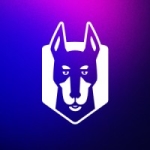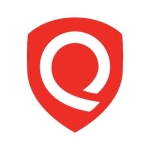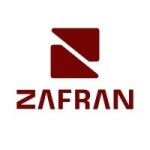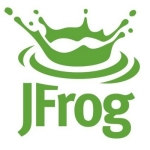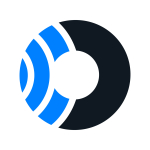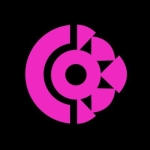What is our primary use case?
We use it for servers, domain controllers, application servers, Oracle servers, SQL servers, as well as network devices, like routers. For PCs that are used for services such as credit cards and ATMs, we usually do a vulnerability assessment, including Windows Servers, Linux servers, SQL servers, and database servers. We scan everything except basic PCs because it would require a lot of time to check all those reports. Our system administrators use another solution to check regular PCs for Windows and MS updates.
We're checking things every month. We created a schedule and it checks automatically. From time to time, we'll use it to check things if something unusual has happened. For example, if a stranger was on a computer, we'll check if is there a vulnerability there.
We also use it to prepare reports when the agency asks for them.
How has it helped my organization?
One thing that is important for us is that when the regulation agency is asking for something. we can send them reports from Nessus and they're very satisfied. If they're satisfied, and they don't have any problem or additional requests, that's most important.
In the past, before we implemented Nessus, we used several products that were doing vulnerability assessments for different machines. For instance, we were using an antivirus/anti-malware and end-point security application for vulnerability assessments for Windows machines. We were using free tools for vulnerability checking for Linux machines. And we were \using Qualys' free version for external IP addresses, because Qualys allows you to check something like three IP addresses for free. I created a report for our regulation agency by combining three or four reports. I spent two weeks making that report. Now, I can create that report in one day. Nessus provides me reports within two to three hours for all our Windows machines. For Linux machines, it's half an hour; for the network, it takes about one hour. So in one day, I have everything ready for the agency.
Similarly, for my upper management, it's my responsibility to provide security reports on a monthly basis about viruses, malware, attacks, etc. Now, it is easier for me to prepare that kind of report. The reports are also more lavish than before. In the past, I had to prepare tables and sheets by myself. Now, everything is prepared for me. If I want to play around with reports I can export to Excel and I can filter the report. Nessus makes everything easier than it was before.
What is most valuable?
Nessus gives me a good preview of vulnerabilities and good suggestions for remediation. It's easy to find a description of a given vulnerability and solutions for it.
What needs improvement?
One area that has room for improvement is the reporting. I'm preparing reports for Windows and Linux machines, etc. Currently, I'm collecting three or four reports and turning them into one report. I don't know if it is possible to combine all of them in one report, but that would be helpful. If the scans which I have already prepared could be used to combine the results into one report, it would save me additional work.
Also, when a new machine is brought into the domain, when it's first connected by the system administrator, it would be good to have some kind of automatic, basic vulnerability scan. Of course, I would have to enter my credentials if I wanted something additional, but it would be useful if, the first time, if that basic process happened. Otherwise, it can be problematic for me when, for example, a new Oracle Database is brought on. I may only be notified after 10 days that it has been connected and only then can I do a vulnerability assessment and I may find a lot of vulnerabilities. It would be better to know that before they put it into production. It would be great to have something automatically recognize a new server, a new PC, and do a basic vulnerability assessment.
For how long have I used the solution?
I have been using Nessus for about half a year.
What do I think about the stability of the solution?
We haven't any problems so far.
A few days ago, I was scanning a range, three or subnets, the whole domain. That was something like 1,000 IP addresses. The first time I did it, things were a little bit slow. I was thinking that it was stuck or blocked. But I left it overnight and checked it in the morning. Everything had finished, correctly, after three or four hours.
That was the only case where I had any issue but it was a problem because I was a little bit lazy. Instead of creating multiple jobs, I put everything together. I didn't know for sure which IP addresses in which segments were being used. That's the reason I wanted Nessus to scan them. I didn't want to check with the system administrator regarding IP addresses because every time I get such information, I usually find IP addresses with computers that the system administrator didn't tell me about. This way, I was sure to get a full vulnerability assessment. And I found two or three computers which had not been updated for two or three months. That was very important for me to find out.
How was the initial setup?
In May, the guys from Alem Systems came to my office and we finished everything for the installation. They showed me how to configure it, how to add new assets, how to check networks, Linux machines, Windows machines, etc.
What's my experience with pricing, setup cost, and licensing?
We bought a one-year license. We are now preparing a new budget for next year and, given our experience with Nessus, we plan to continue with it for next year. We are satisfied with it. It's the best option for small banks. For us, here in Bosnia, a small bank would have about 150 to 250 employees, with 20 to 30 branches throughout the country. The biggest bank here has more than 2,000 and maybe as many as 3,000 employees.
Which other solutions did I evaluate?
I didn't have a lot of experience with this type of product. I heard and knew that vulnerability assessment is most important. We paid a company to do a pen-test in our bank. That was the first time I heard about vulnerability assessment and about Nessus, Qualys, and Guardium. At that moment, I started to think about it and to search for the best option for us.
In the past, it was tricky to find money for this kind of application. But recently, a new director started with our company. He understands what security actually means and that it's important for a bank. He gave me a bigger budget.
I started, one year ago, checking all products on the market for vulnerability checking and scanning. The first option was Qualys because everybody here, my colleagues, were saying that Qualys is the best. But there were two problems with Qualys for me. First, there is no on-premise version, only a cloud version. And the second issue was the price. The first issue, that Qualys is only connected to the cloud, was most important because I must prepare documents for our regulation agency in banking. With Qualys in the cloud, I would have to prepare risk assessments, etc., and that would be a lot of work for me. And then I would have to wait for that agency's approval, which could take some three months. Finally, when I started thinking, "Okay, I'll go that route and will prepare everything," when I asked about the price of Qualys here in Bosnia, I realized it was too much for us because we are a small bank.
I also checked an IBM solution, Guardium, because there are a lot of companies working with IBM here. It's easier to find solutions for IBM. The reason I didn't go with Guardium was its price.
After that, I started checking other products. Nessus was one of the options. I had a friend working for Alem Systems and spoke with him over a coffee. We spoke about solutions and he said, "Why don't you use Nessus? Nessus is good." He explained everything to me, and he showed me a demo and how it works in a particular company. I said, "Okay, if Nessus is good enough for me, who will sell it to me?" He said, "I will do that."
We are a small bank. I don't need to take care of 100 or 200 servers or many switches and routers and PCs. Nessus is easy to configure and it's easy to add additional searching and scanning for new assets, like a new router. I had seen Qualys at conferences, but I hadn't used it myself. A presenter showed how it worked, but I didn't have hands-on experience. My friend showed me Nessus and he gave me an idea of how to work with it. When I first used it by myself — I created a scheduled job for a server — when I got the report, I realized that it was easy for me, and that was great. Maybe Qualys has better graphics, but I didn't have experience with it. Nessus, now, is perfect.
Finally, I decided that the price was good enough for me and for my bosses. So I finally found a solution after six months.
I didn't need it to be something complicated, to have some NASA-level product. I needed it to work properly and simply, to show me what I need to do. I had to be able to explain to my system administrators what they should do. When I get a report I explain it and give it to my system administrators to solve the problem.
What other advice do I have?
If I were to speak to someone who works with IBM Guardium they would probably tell me, "Ah, Nessus is too simple for me. Guardium is better." But I can recommend Nessus to anyone who wants a good product for a "small amount of money." It's the best buy.
When I speak with my colleagues we usually share our experiences. I know that some of my colleagues are thinking about Nessus for next year because they don't have any solution, but they need one, according to regulations. When I explain how it works they usually say that they will check into it. Probably, in Bosnia, there will be two more banks using Nessus in the next year.
Alem, as a company, is very friendly and that's most important. They come to our office to explain things. They spent three or four hours here with me, explaining everything about Nessus. They suggested a free trial. It's important to have that kind of support. I know that if I need something, I can ask them without any problems, at any time.
Overall, Nessus is working well.
Disclosure: PeerSpot contacted the reviewer to collect the review and to validate authenticity. The reviewer was referred by the vendor, but the review is not subject to editing or approval by the vendor.







